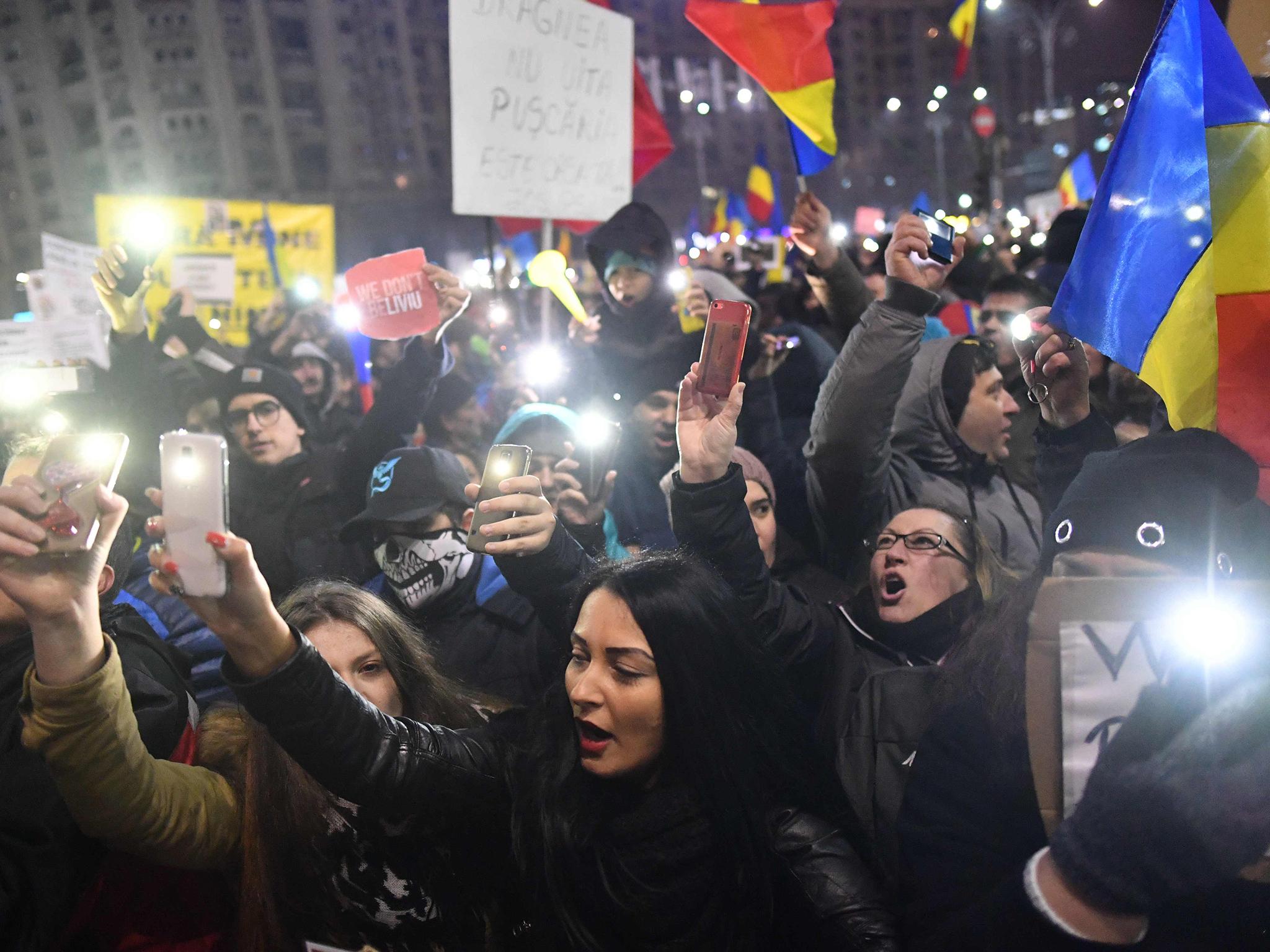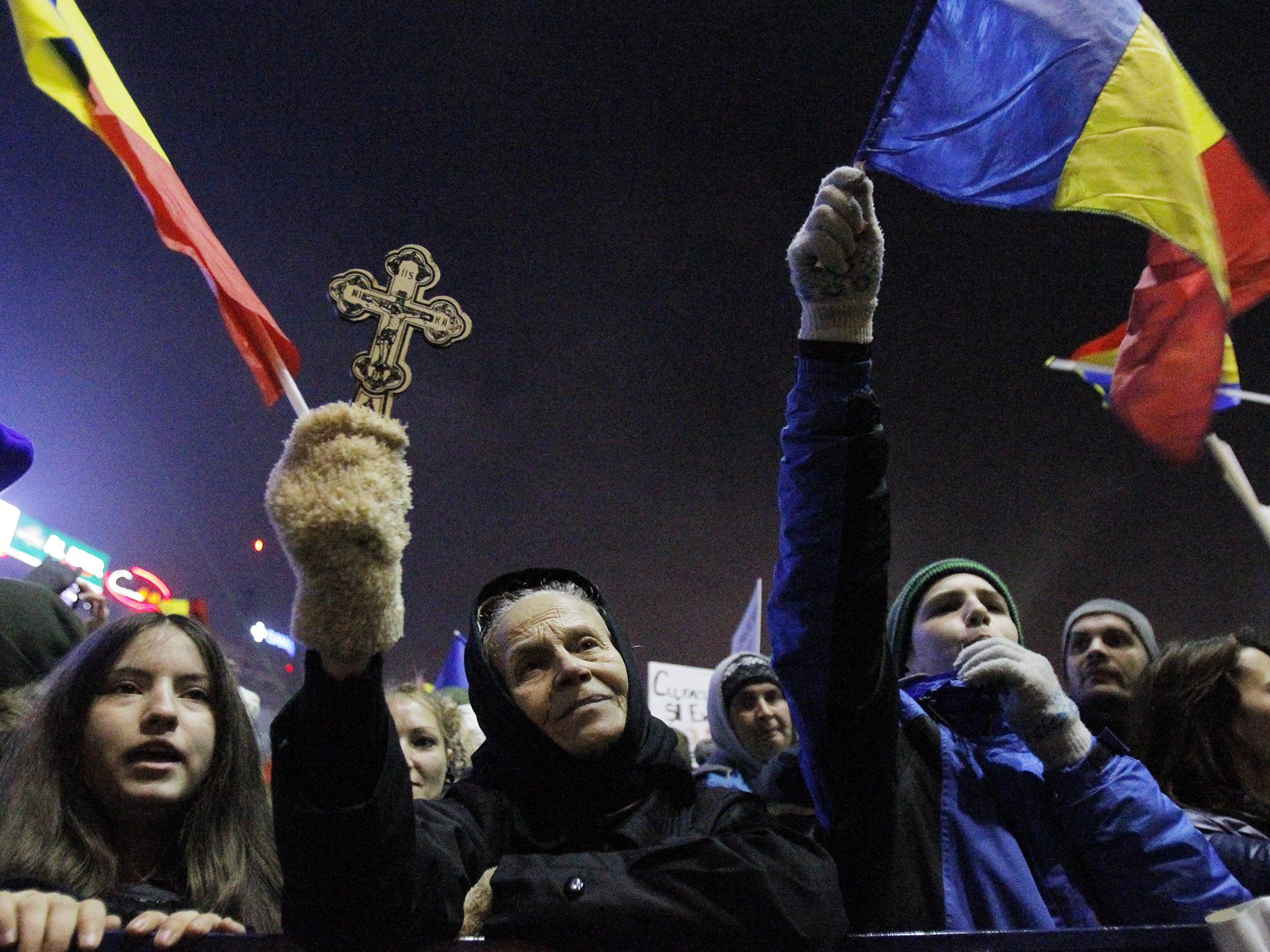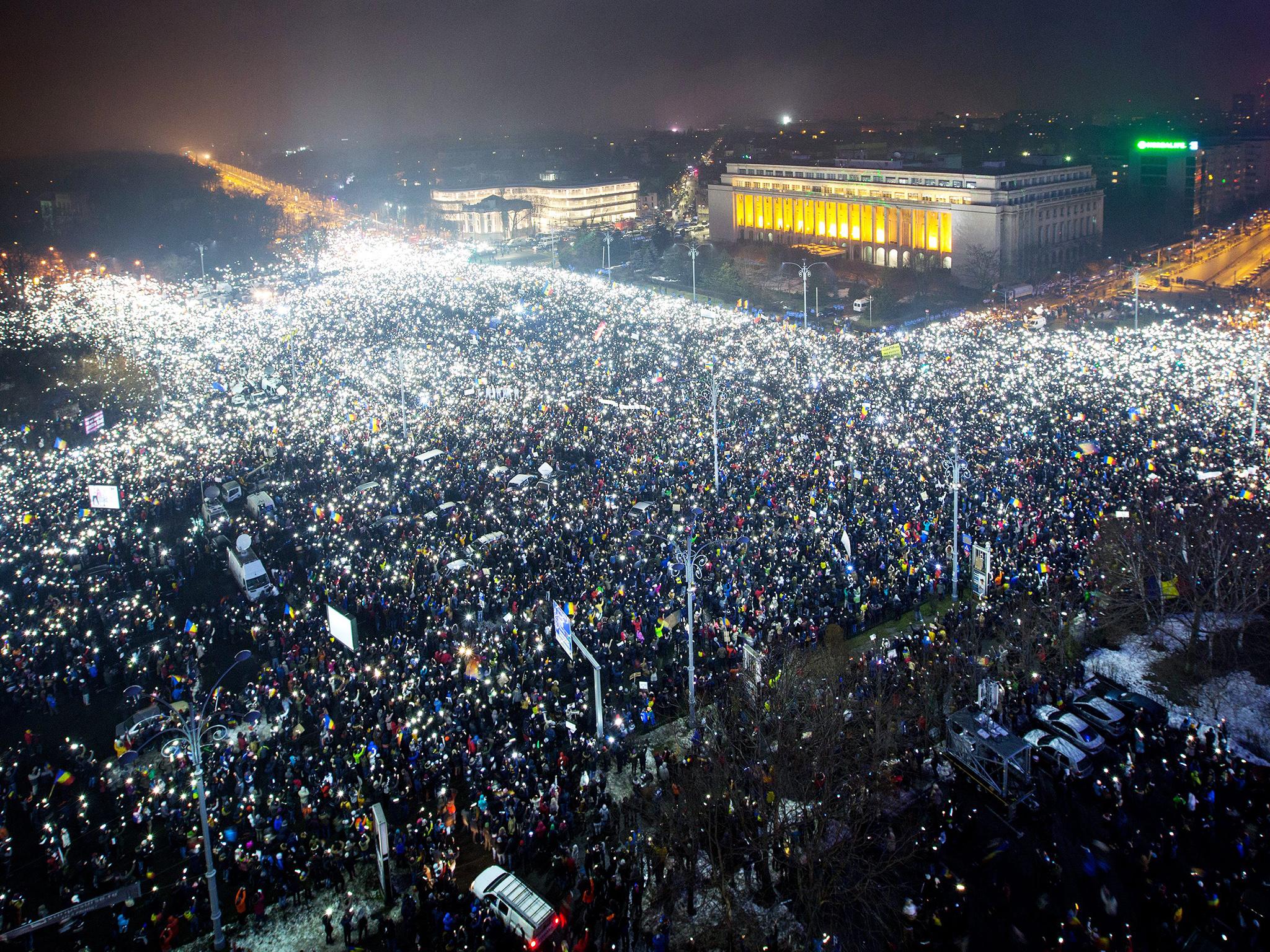Romania protests rage into seventh day despite government climbdown over 'legal corruption' law
PM insists government will not collapse amid fiercest demonstrations since end of communist rule in 1989, after attempts were made to ease up on corruption rules

Your support helps us to tell the story
From reproductive rights to climate change to Big Tech, The Independent is on the ground when the story is developing. Whether it's investigating the financials of Elon Musk's pro-Trump PAC or producing our latest documentary, 'The A Word', which shines a light on the American women fighting for reproductive rights, we know how important it is to parse out the facts from the messaging.
At such a critical moment in US history, we need reporters on the ground. Your donation allows us to keep sending journalists to speak to both sides of the story.
The Independent is trusted by Americans across the entire political spectrum. And unlike many other quality news outlets, we choose not to lock Americans out of our reporting and analysis with paywalls. We believe quality journalism should be available to everyone, paid for by those who can afford it.
Your support makes all the difference.Romania's prime minister said the ruling coalition will not resign despite mass demonstrations against a measure which would ease up on corruption.
There are signs, however, that the centre-left government may not push ahead immediately with its attempt to decriminalise official misconduct, which ignited the protests.
Prime minister Sorin Grindeanu acknowledged that "the act had led to division", and suggested he may sack the justice minister later this week.

Unrest is continuing, with hundreds of government supporters massing outside the presidential palace in the Romanian capital, Bucharest, blaming president Klaus Iohannis for the crisis.
The president has strongly opposed the measure.
Elsewhere, protesters began gathering outside the government offices for the seventh consecutive evening in Victory Square, the site of the biggest protests Romania has had since communism was overthrown in 1989.
Social Democratic chairman Liviu Dragnea emerged from a meeting with governing partners saying that "we unreservedly expressed our support for the government ... and the prime minister".
On Sunday, the government backed down following six days of street protests over an emergency ordinance that would decriminalise abuse in office by officials if the amount involved was less than about 48,500 dollars (£38,865).
It plans to introduce another version of the law in parliament, where it has a majority.

However, in a sign of second thoughts, justice minister Florin Iordache later said in a statement he was "not preoccupied" with drawing up a draft law.
"Currently, the justice minister is focusing on the decisions published by the Constitutional Court ... which will be analysed in the near future," the statement said.
The Constitutional Court is expected to rule on the constitutionality of the decriminalising proposal later this week.
Mr Dragnea, the major power broker in the government, is banned from being prime minister because of his conviction in April 2016 for vote rigging.
Associated Press
Join our commenting forum
Join thought-provoking conversations, follow other Independent readers and see their replies
Comments